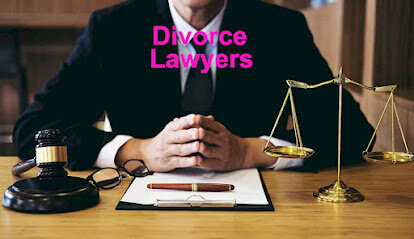Best Bankruptcy Lawyers in New York
Share your needs with us, get contacted by law firms.
Free. Takes 2 min.
Or refine your search by selecting a city:
List of the best lawyers in New York, United States
About Bankruptcy Law in New York, United States
Bankruptcy law in New York is designed to provide financial relief for individuals and businesses that are unable to pay their debts. Bankruptcy is primarily governed by federal law under the United States Bankruptcy Code, but certain procedures and exemptions are uniquely influenced by New York State laws. Filing for bankruptcy can help stop creditor harassment, halt foreclosure proceedings, and provide an opportunity to reorganize or eliminate debt. There are different types of bankruptcy, such as Chapter 7, which involves liquidation of assets, and Chapter 13, which allows for a debt repayment plan. Understanding how bankruptcy works in New York is essential for making informed financial decisions during times of distress.
Why You May Need a Lawyer
Bankruptcy law is complex and involves numerous steps, extensive paperwork, and strict deadlines. A lawyer can help ensure your rights are protected and maximize the benefits of filing for bankruptcy. You might need legal assistance in the following situations:
- You are facing foreclosure on your home and need to understand your options.
- You have overwhelming credit card debt, medical bills, or personal loans and are not able to make payments.
- You own significant assets and are concerned about which ones you can keep during bankruptcy.
- You are being harassed by collection agencies or creditors.
- You are considering filing for bankruptcy as a small business owner.
- You have previously filed for bankruptcy and are unsure if you qualify to file again.
- You have cosigners or joint account holders and need to understand how bankruptcy will affect them.
- You are confused about the differences between Chapter 7 and Chapter 13 bankruptcy and which is right for your situation.
- You are worried about the long-term impact of bankruptcy on your credit and financial life.
- You need guidance completing the required means test or court-mandated courses.
Local Laws Overview
Bankruptcy cases in New York must follow federal bankruptcy law, but certain state-specific laws can impact your case. Here are some key local aspects to consider:
- Exemptions: New York law allows filers to choose between federal and New York State exemption lists, which determine the property you may protect during bankruptcy. Examples include protection for a certain amount of home equity, vehicles, personal property, and retirement accounts.
- Means Test: To qualify for Chapter 7 bankruptcy, you must pass a means test that compares your income to the median in New York and considers your expenses and family size.
- Filing Requirements: Bankruptcy cases are filed in one of New York’s federal bankruptcy courts based on where you live. New York is divided into several districts, including Southern, Eastern, Northern, and Western Districts.
- Homestead Exemption: New York offers a generous homestead exemption, which allows you to protect a portion of your home’s equity. The amount depends on the county in which you reside.
- Bankruptcy Discharge: After a successful bankruptcy case, most debts are discharged, meaning you are no longer legally required to pay them, with exceptions for certain debts like student loans or child support.
- Debtor Education: New York filers are required to complete credit counseling before filing and a debtor education course before debts can be discharged.
- Trustees: Bankruptcy trustees play a crucial role in reviewing your paperwork and administering your assets. They ensure compliance with both federal and local rules.
Frequently Asked Questions
What is the difference between Chapter 7 and Chapter 13 bankruptcy in New York?
Chapter 7 involves liquidating non-exempt assets to pay creditors, while Chapter 13 allows individuals to keep their property and repay debts over three to five years through a court-approved plan.
Will I lose my home if I file for bankruptcy in New York?
Not necessarily. New York’s homestead exemption may allow you to keep your home, depending on how much equity you have and other factors. A lawyer can help assess your unique situation.
Can bankruptcy stop foreclosure or repossession?
Filing for bankruptcy usually triggers an automatic stay, which temporarily stops foreclosure, repossession, and most collection activities. This may give you time to work out a solution or catch up on payments.
How long does bankruptcy stay on my credit report?
A Chapter 7 bankruptcy typically remains on your credit report for 10 years, while Chapter 13 generally stays for 7 years.
What debts cannot be discharged in bankruptcy?
Certain debts such as student loans (except in rare hardship cases), child support, alimony, most taxes, and court fines usually cannot be eliminated through bankruptcy.
How much does it cost to file for bankruptcy in New York?
There are court filing fees (around 338 dollars for Chapter 7 and 313 dollars for Chapter 13 as of 2024) and attorney fees, which vary depending on your case. Fee waivers or payment plans may be available if you qualify.
Can I file for bankruptcy on my own?
Yes, you may file “pro se,” but the process is complicated. Missing paperwork or incorrect filings can result in case dismissal or loss of property. Legal help is highly recommended.
How often can I file for bankruptcy?
There are waiting periods between bankruptcy filings, depending on the chapters involved and the outcome of your prior case. For example, you must wait eight years between Chapter 7 filings.
Does bankruptcy affect my spouse?
If only one spouse files, the other’s credit is not directly affected unless you have shared debts. However, responsibility for joint debts may shift, so individual circumstances matter.
What happens to my car if I file for bankruptcy?
Depending on the value of your car and the exemptions you choose, you may be able to keep your vehicle. In some cases, you may need to continue loan payments or reaffirm the debt.
Additional Resources
If you are considering bankruptcy in New York, these resources may offer support, information, or assistance:
- United States Bankruptcy Court for the Southern, Eastern, Northern, and Western Districts of New York
- Legal Aid Society or local legal services providers
- New York State Bar Association Lawyer Referral Service
- The Office of the United States Trustee (Region 2 for NY)
- Community-based non-profit credit counseling agencies
- The New York Department of Financial Services for consumer debt resources
Next Steps
If you are considering filing for bankruptcy or need legal help, here is how to proceed:
- Gather all relevant financial documents, including lists of assets, debts, income, and expenses.
- Contact a qualified bankruptcy attorney familiar with New York law for a consultation.
- Explore non-bankruptcy options such as debt counseling or negotiation, if appropriate.
- Begin mandatory credit counseling with an approved provider before filing your case.
- Work closely with your lawyer to complete all required paperwork and forms accurately.
- Attend all required court hearings and complete debtor education as mandated.
- Stay engaged in the process and communicate openly with your attorney for the best possible outcome.
Bankruptcy can offer a fresh start, but thorough preparation and professional guidance are key to navigating the process successfully in New York.
Lawzana helps you find the best lawyers and law firms in New York through a curated and pre-screened list of qualified legal professionals. Our platform offers rankings and detailed profiles of attorneys and law firms, allowing you to compare based on practice areas, including Bankruptcy, experience, and client feedback.
Each profile includes a description of the firm's areas of practice, client reviews, team members and partners, year of establishment, spoken languages, office locations, contact information, social media presence, and any published articles or resources. Most firms on our platform speak English and are experienced in both local and international legal matters.
Get a quote from top-rated law firms in New York, United States — quickly, securely, and without unnecessary hassle.
Disclaimer:
The information provided on this page is for general informational purposes only and does not constitute legal advice. While we strive to ensure the accuracy and relevance of the content, legal information may change over time, and interpretations of the law can vary. You should always consult with a qualified legal professional for advice specific to your situation.
We disclaim all liability for actions taken or not taken based on the content of this page. If you believe any information is incorrect or outdated, please contact us, and we will review and update it where appropriate.
Browse bankruptcy law firms by city in New York
Refine your search by selecting a city.











